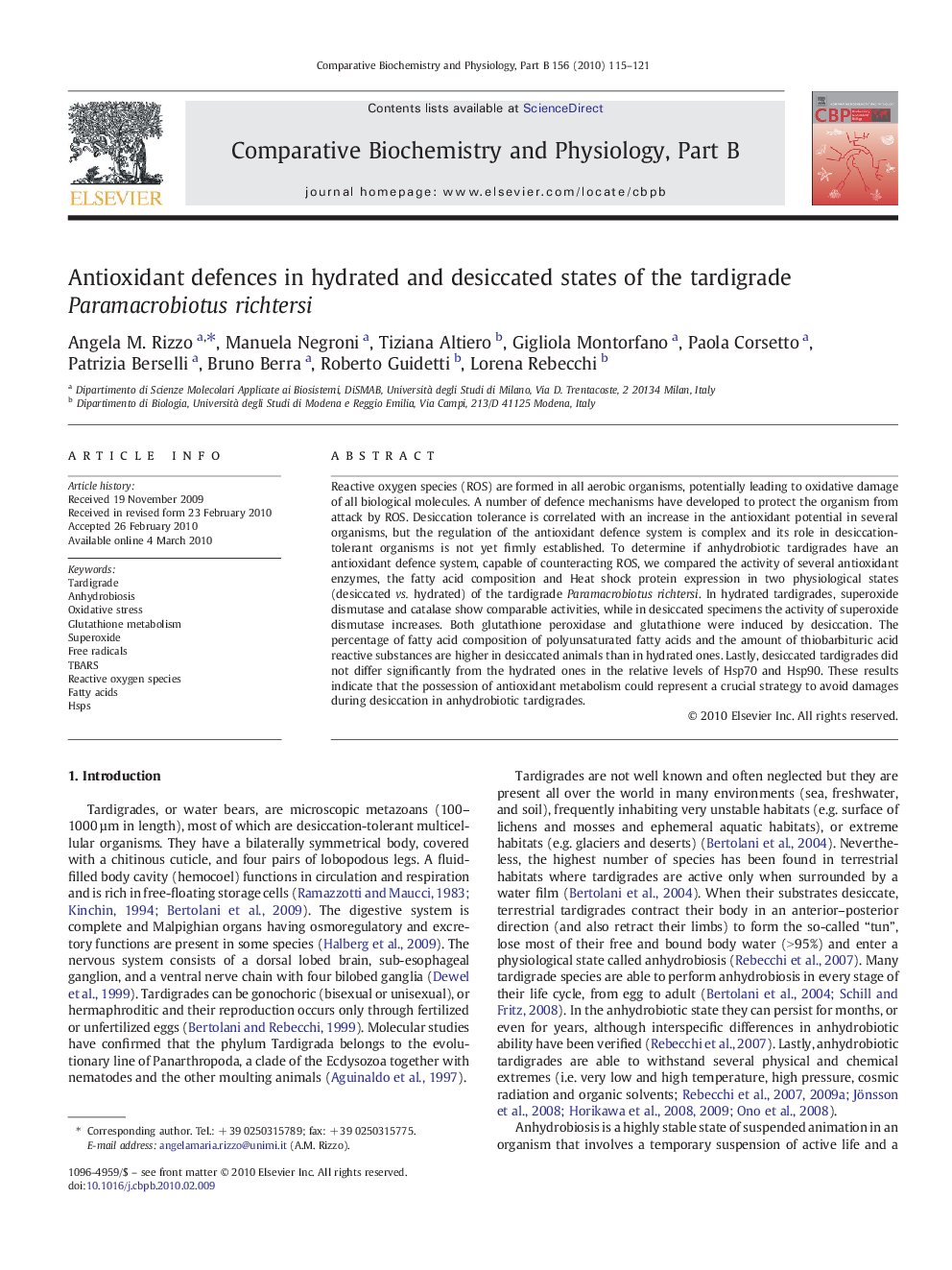| Article ID | Journal | Published Year | Pages | File Type |
|---|---|---|---|---|
| 1976065 | Comparative Biochemistry and Physiology Part B: Biochemistry and Molecular Biology | 2010 | 7 Pages |
Reactive oxygen species (ROS) are formed in all aerobic organisms, potentially leading to oxidative damage of all biological molecules. A number of defence mechanisms have developed to protect the organism from attack by ROS. Desiccation tolerance is correlated with an increase in the antioxidant potential in several organisms, but the regulation of the antioxidant defence system is complex and its role in desiccation-tolerant organisms is not yet firmly established. To determine if anhydrobiotic tardigrades have an antioxidant defence system, capable of counteracting ROS, we compared the activity of several antioxidant enzymes, the fatty acid composition and Heat shock protein expression in two physiological states (desiccated vs. hydrated) of the tardigrade Paramacrobiotus richtersi. In hydrated tardigrades, superoxide dismutase and catalase show comparable activities, while in desiccated specimens the activity of superoxide dismutase increases. Both glutathione peroxidase and glutathione were induced by desiccation. The percentage of fatty acid composition of polyunsaturated fatty acids and the amount of thiobarbituric acid reactive substances are higher in desiccated animals than in hydrated ones. Lastly, desiccated tardigrades did not differ significantly from the hydrated ones in the relative levels of Hsp70 and Hsp90. These results indicate that the possession of antioxidant metabolism could represent a crucial strategy to avoid damages during desiccation in anhydrobiotic tardigrades.
